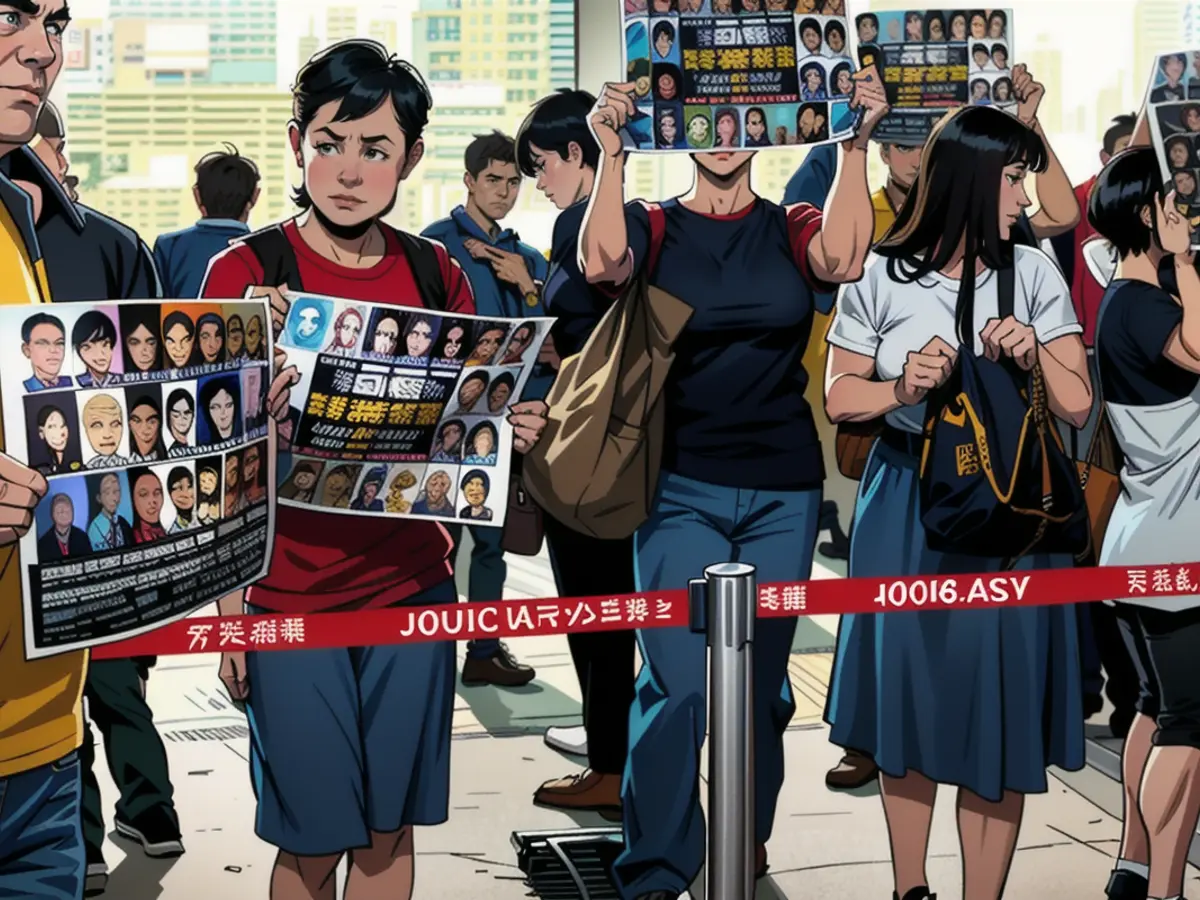Ruling - "Hong Kong 47": Democracy Activists Convicted of Guilt
A Hong Kong court has decisions out on 14 pro-democracy activists, in what's become the biggest trial involving accusations of breaking the controversial national security law in the Chinese territory. Two of the defendants were found not guilty, the court shared. All 16 initially accused maintained their innocence. Judgments for the remaining 31 of the 47 defendants are still forthcoming. The time for sentencing will be revealed at a later date. Plotting to undermine government authority can potentially land someone a life sentence in the worst-case scenario.
Reportedly, diplomats from various nations closely watched the proceedings in person. Police presence near the court in West Kowloon was substantial. In this case, several high-profile figures among the 47 defendants include Joshua Wong, a former student leader, and law professor Benny Tai. This group of political opposition figures had been detained over three years ago. The proceedings themselves ran from February to December 2023. Now, the first outcomes are here.
Human Rights Watch publicly stated their concerns about the rulings. "Having a Hong Kong court pronounce conviction of 14 individuals for their regular political activism reflects flagrant disregard for democratic political systems and rule of law," noted the organization's chief representative on China, Maya Wang, in a statement.
Charged over an unofficial election
These 47 "Hong Kongers" are facing charges for organizing illegal primary elections before the 2020 parliamentary elections, known as the legislative council in Hong Kong. Supposedly, by doing so, they allegedly endangered state security and undermined the 2020 national security law that came in effect in late summer.
The primary elections occurred back in July 2020, even after Hong Kong officials had expressed concern that they might be breaching the law, which had recently been implemented. Beijing has justified the law, enacted in response to massive pro-democracy demonstrations, as crucial for upholding stability within Hong Kong. The opposer's argument, however, is that the law trims the city's admired autonomy and liberties.
The new law targets anything the Chinese Communist Party deems as subversive, separatist, terrorist, or plan-concerning. Since the law's inception, hundreds of political figures and activists have been arrested and put on trial. Specified political liberties and freedom of expression have been greatly diminished. Many leading activists have fled beyond the borders.
Read also:
- Year of climate records: extreme is the new normal
- Precautionary arrests show Islamist terror threat
- UN vote urges Israel to ceasefire
- SPD rules out budget resolution before the end of the year
- The South China Morning Post reported extensively on the trial, with coverage spanning from the initial accusations to the recent court rulings.
- Human rights organizations, including Amnesty International and Amnesty International Hong Kong, have strongly criticized the imprisonment of the activists, citing concerns about freedom of speech and democracy in Hong Kong.
- Protests took place in Kowloon and other parts of Hong Kong, with activists and citizens demanding the release of the imprisoned activists and the repeal of the National Security Law.
- In response to the recent convictions, Beijing has reaffirmed its support for the Security Act and its commitment to maintaining stability and order in Hong Kong.
- Some international leaders, including US President Joe Biden, have called for the release of the activists and for China to respect Hong Kong's democratic system and human rights.
- The conviction of the activists has led to increased tensions between China and several Western countries, with some calling for sanctions against Chinese officials involved in the case.
- Amidst the political unrest, there are concerns that the crackdown on dissent in Hong Kong could lead to a broader move towards authoritarianism in China, with implications for human rights and democracy worldwide.
Source:








